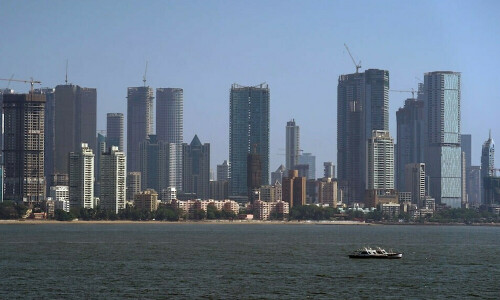Indian Home Prices and Rents Expected to Outpace Inflation
A recent Reuters poll of housing experts indicates that average home prices and rental costs in India are projected to rise faster than consumer inflation this year. Experts are divided on whether this will make it more or less difficult for first-time homebuyers to afford property.
Economic challenges, including slow growth, stagnant wages, and a lack of high-paying jobs, have reduced the savings of many working-class families. Meanwhile, home prices have almost doubled in the last ten years, driven by a housing market dominated by high-income earners. The disparity between robust demand and constrained supply has further driven up prices, forcing many to rent.
The survey of 14 property market experts, conducted between February 17 and March 4, forecasts that average home prices in India will increase by 6.5% this year and 6.0% the following year, following a 4.0% rise last year.
Urban rental costs are anticipated to rise even more rapidly, with increases between 7.0% and 10.0% expected over the next year. This would exceed the projected consumer inflation rate of 4.3% and 4.4% for the next two fiscal years, as indicated by another Reuters survey.
Soaring rents are making it harder for first-time buyers to save for a down payment, making homeownership even more challenging.
Pankaj Kapoor, managing director at Liases Foras, a real estate research firm, stated, “This is a double-whammy: home prices will outpace inflation, and rents have already been skyrocketing for years… For millions, I think homeownership is becoming a distant mirage… Economic growth isn’t translating into higher incomes and jobs. Instead, we are seeing a housing market where only the wealthy can buy. I don’t think this trend will change soon.”
Ajay Sharma at Colliers International and Atif Khan at CBRE concurred with this assessment.
Home prices in Mumbai and Delhi, including the National Capital Region, are expected to increase by 5.8% to 8.5% this year and next. Bengaluru and Chennai are forecast to see price increases of 5.0% to 7.3%.
When asked about the impact on affordability for first-time homebuyers in the coming year, the experts were evenly split. Seven predicted improvement, while seven anticipated a decline.
Arvind Nandan, managing director of research at Savills India, commented, “With these price escalations, affordability for first-time buyers is likely to decline as rising costs outpace income growth, making homeownership more challenging, especially in high-demand metropolitan regions… This makes renting a more viable option than home buying.”
Finding affordable housing remains a significant challenge for the millions moving to cities as India urbanizes, despite government efforts to increase supply.
When asked about the primary driver for increasing the supply of affordable housing in major cities, 11 out of 13 respondents pointed to intervention from central or local government. One cited market-driven adjustments, and another anticipated no significant change in the near future.
Vivek Rathi, director of research at Knight Frank, noted, “Although there have been policy measures to support demand and infusion of affordable housing in India…There is already an existing shortage of 10.1 million units.”



Comments (0)
No comments yet. Be the first to comment!
Leave a Comment